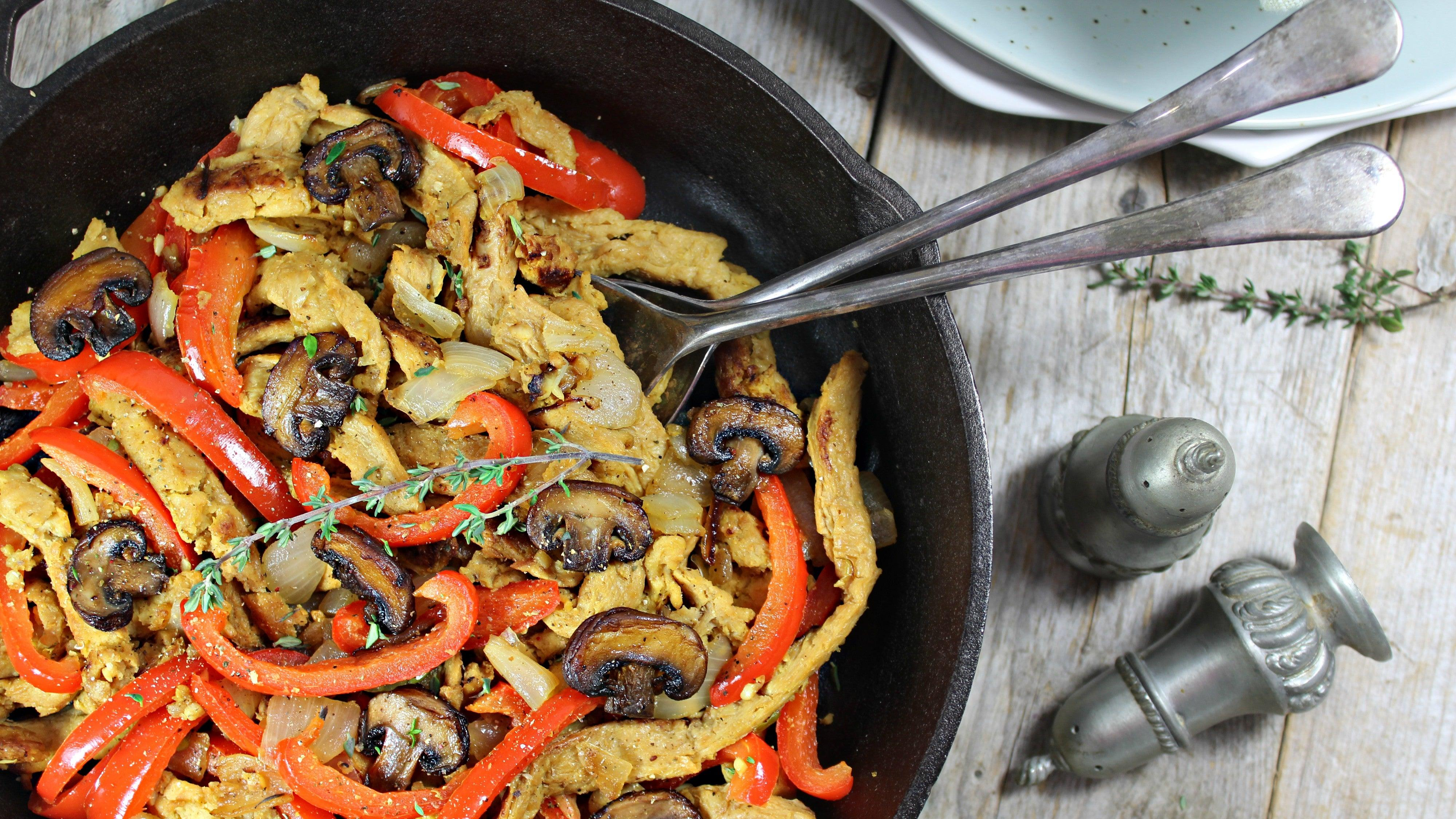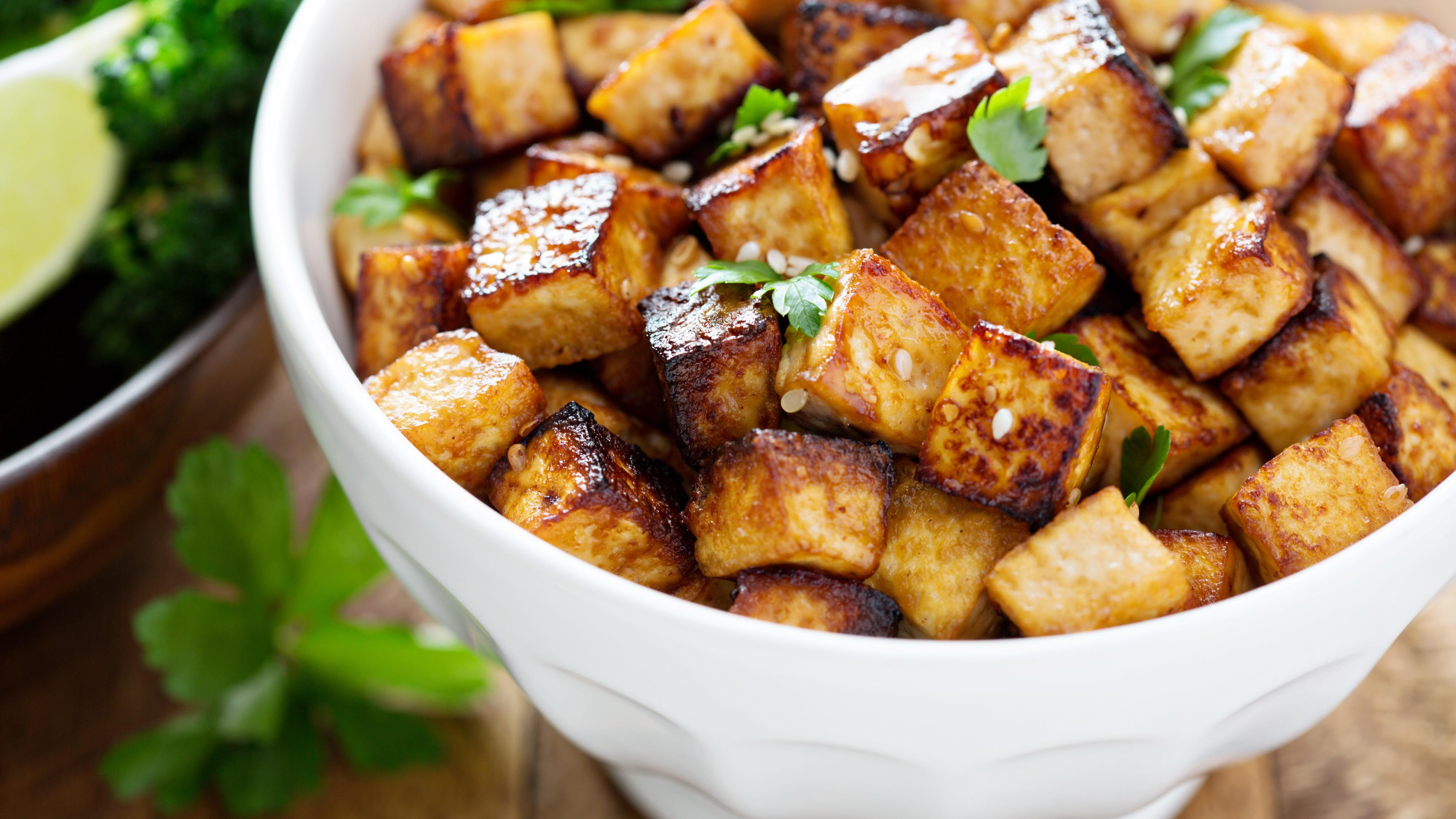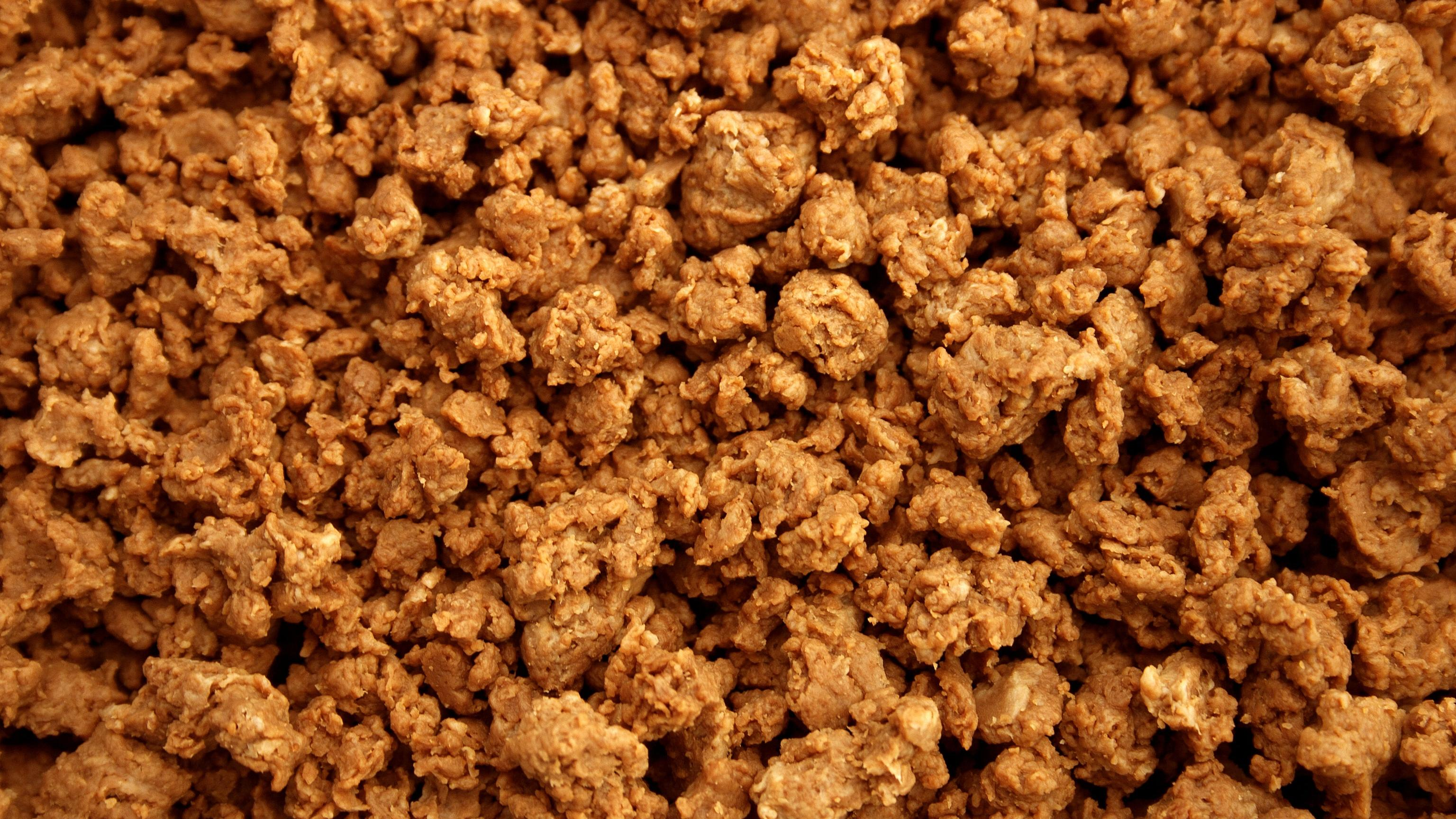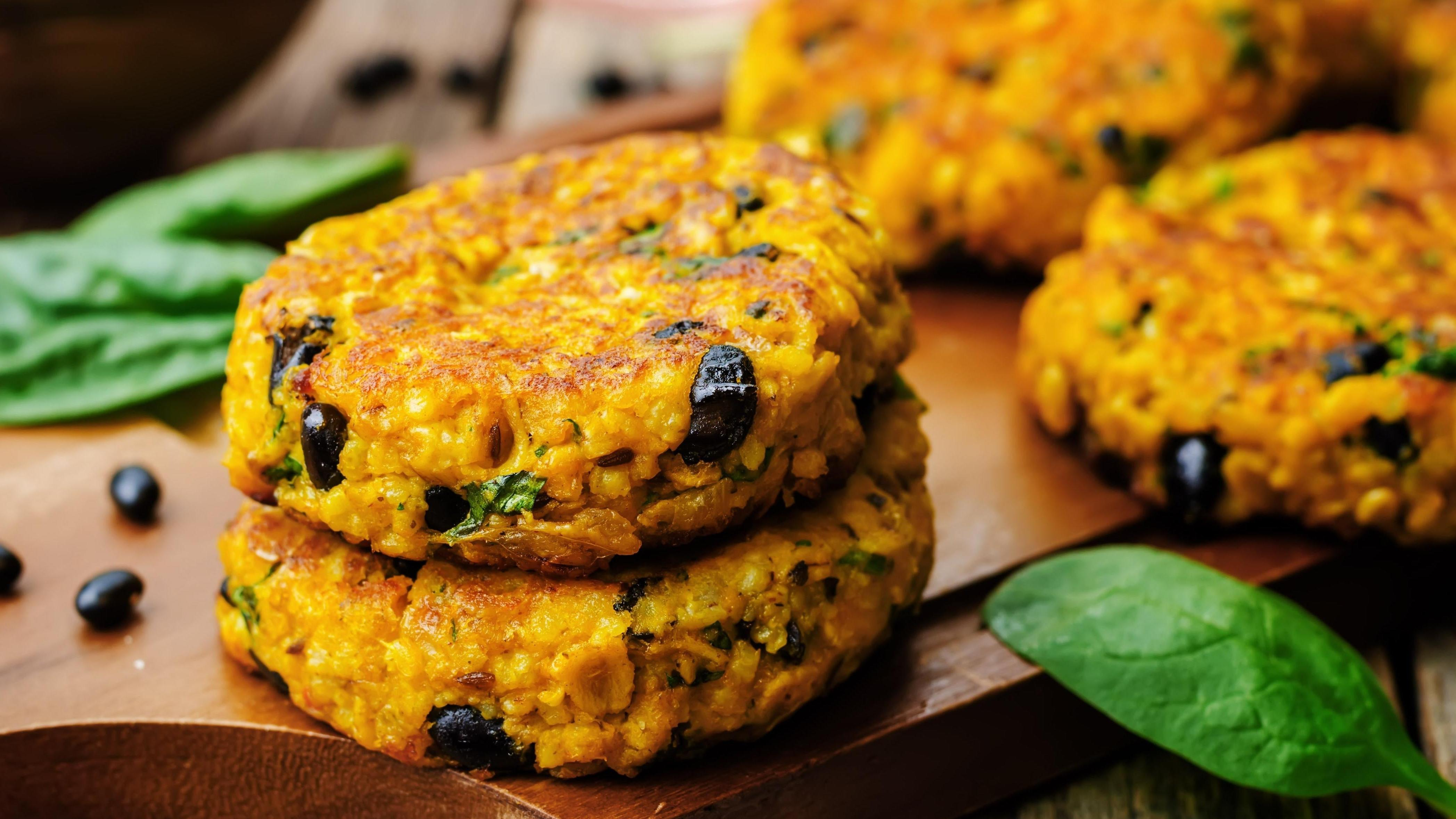7 Versatile Vegan Meat Alternatives (And When To Use Them)
You don't need Impossible and Beyond Meat to satisfy your cravings.
From Impossible Foods to Beyond Meat, companies are racing to figure out meat substitutes that inch ever closer to the real thing in terms of taste, texture, and overall experience. But eating these proprietary meat substitutes isn't the only way to replace animal products in one's diet; long before any of us had heard the phrase "Impossible Whopper," there were a thousand ways to enjoy substantial, satisfying plant-based meals. Here's a quick overview of all the vegan ingredients you can sub in for meat, if that's what you're looking for—but they're are also delicious and versatile in their own right.
Seitan
Seitan is a high-protein food that's composed mainly of wheat gluten. It has a chewy and spongy texture, and it's a great swap for many dishes that feature thinly shaved meats, such as gyros, deli sandwiches, and anything involving bacon. But it can take a multitude of forms beyond slices, such as crumbles, nuggets, and jerky. It's a great all-purpose vegan protein specifically because it takes to seasonings quite well, and it can make a mean Italian "beef" sandwich.
Tempeh
Tempeh is a soybean cake that originated in Indonesia. It's made from cooked and fermented soybeans, and in the West, it's used as a protein in vegan and vegetarian cooking due to its savory, meaty qualities. It takes well to all types of cooking, and when it's served as a snack in Indonesia, it's almost always deep-fried. Want it in a sandwich? Sure thing. Crumble it up for a protein in a salad? That works too. Its substance and flexibility is why it's such a staple in vegan cuisine.
Jackfruit
A massive, spiky fruit is probably not what springs to mind as a suitable replacement for meat. But jackfruit's pull-apart interior texture makes it a great candidate for dishes like mock pulled pork, buljol, or anything else that calls for a firm, slightly stringy consistency. Since the flavor is fairly neutral, it takes to sauces well. It's not a protein-rich food like many of the other popular meat analogues, but it's no less useful or delicious than heavy hitters like tofu and seitan.
Soy protein / curls
Soy curls can be your secret weapon in the kitchen, if you choose wisely when to deploy them. They're made out of entire soybeans and come dehydrated; a quick 10-minute soak before cooking will rehydrate them into long, chewy strands that can emulate chicken. Think fajitas, wraps, or pretty much anything that would otherwise call for bite-sized poultry.
Tofu
Though people often use tofu as a replacement for animal proteins in a dish, it's meant to stand on its own as a primary ingredient or even the main attraction. When you consider tofu this way—and not just as a 1:1 meat substitute—you're freed up to use it in anything you can think of. Stir fries, sandwiches, tacos, scrambles, whatever your heart desires. Tofu takes to sauces, marinades, aggressive seasoning, and pickling very well, and it can be made crispy and snackable using this trusty microwave trick.
Mycoprotein
Mycoprotein is unusual in multiple ways. One, it's derived from a fungus called Fusarium venenatum, which produces this protein after being fed glucose syrup. Two, there's only one purveyor of this type of vegan protein in the U.S. and Europe, a company called Quorn. You can get Quorn's products in the refrigerated or frozen aisle in many supermarkets, where it's used for items like vegan chicken nuggets along with vegan meat crumbles.
Mycoprotein products are all seemingly used as direct analogues to meat, in case you're looking for a swap-out replacement and not, say, an alternative ingredient like tofu or seitan. More than anything, though, it's an interesting example of how companies are developing new and interesting formulations that might make meat feel like less and less of a necessity.
Beans and legumes
Beans and other legumes are often used as a vegan meat substitute because they're a good source of protein. But they're also full of fiber, shelf-stable, affordable, easy to prepare—listen, we could list the virtues of legumes all day long. Here are just a few satisfying ways to cook with them that will make you forget meat ever existed:







